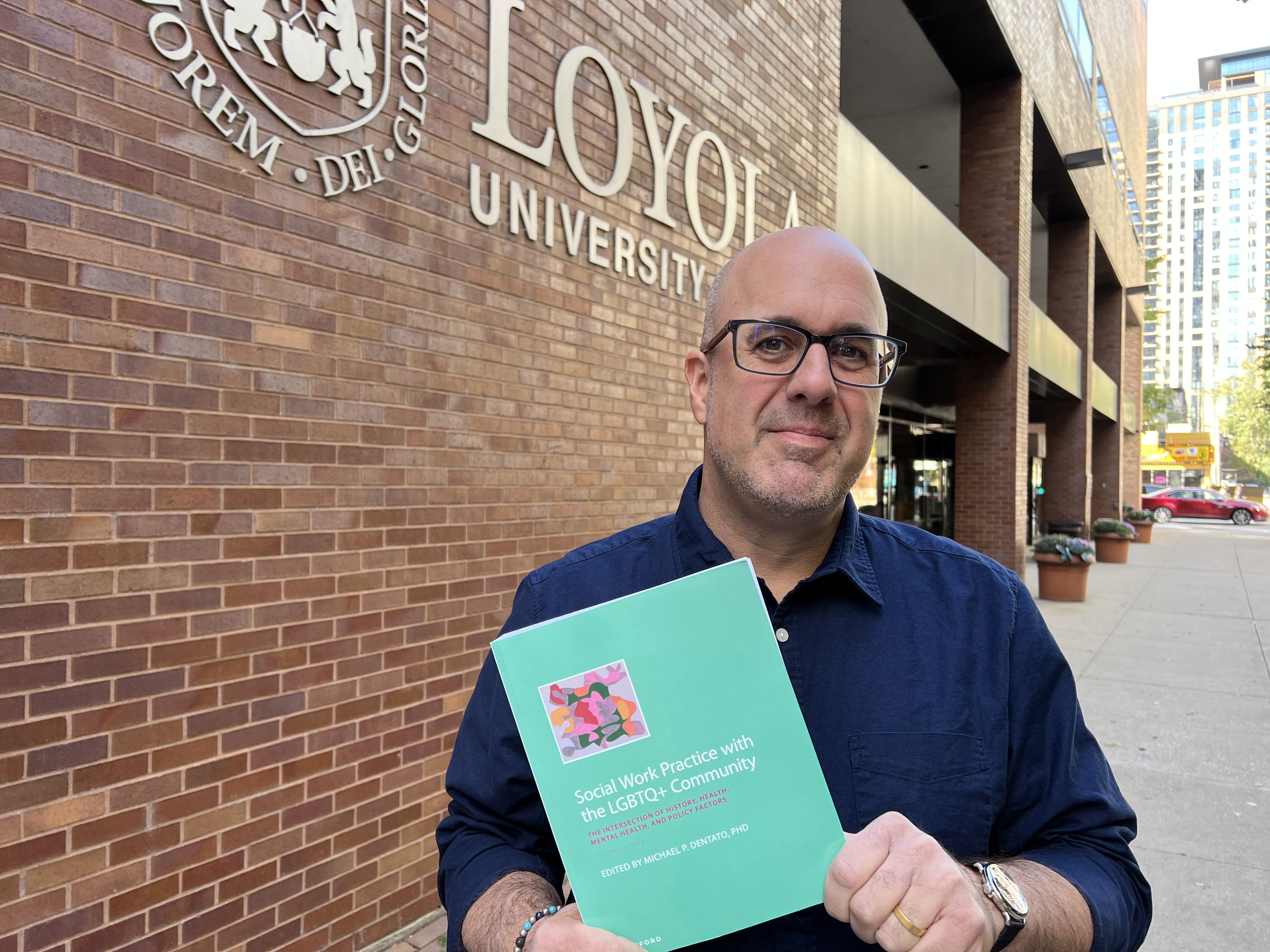archive
Second Edition of Dr. Michael Dentato's Book Released

The second edition of Social Work Practice with the LGBTQ+ Community: The Intersection of History, Health, Mental Health, and Policy Factors, edited by Dr. Michael P. Dentato was published by Oxford University Press in August 2022. Dentato is an Associate Professor and the Interim Associate Dean for Research in the School of Social Work.
Dentato noted that the second edition not only incorporates key feedback from reviewers of the first edition, published in 2017, but also blends conceptual, theoretical, and empirical content as well as new case examples, vignettes, and key practice questions for readers to consider. Dentato spoke about the “unique opportunity to update the text focusing on practice with members of the lesbian, gay, bisexual, transgender, and queer + (LGBTQ+) community, while working closely with 48 colleagues and co-authors from across the U.S. and Canada including faculty, students, and practitioners.”
He further noted, “While the writing and momentum was truly challenging at times over the past couple of years in the midst of the pandemic, it was so rewarding to motivate one another and finally see the text in print this summer.”
The text examines current trends in the field related to practice and policy while spanning micro, mezzo, and macro frameworks. Newly expanded narrative and research underscores the importance of understanding intersectional and multidimensional identities in practice, as well as the short and long term impact of oppression and resilience.
The 722 page text also provides an overview of concerns related to local, national, and global progress and ongoing challenges related to equality and equity for LGBTQ+ populations. It is broken up into 24 chapters spanning five sections:
Part I: Overview: Building Knowledge for Practice
Part II: Considerations Across the Lifespan
Part III: Affirming LGBTQ+ Practice Approaches
Part IV: Health and Mental Health Factors
Part V: Appendices
Notable additions to the second edition include use of the plus (+) symbol as an extension of the larger LGBTQ acronym creating space and visibility for other diverse sexual orientations and gender identities (e.g., asexual, pansexual, nonbinary, two-spirit). Another important change is fluctuation with use of the terms trans, transgender, gender diverse, and gender expansive while removing usage of gender nonconforming to be more affirming of widely diverse trans identities. New chapters for the second edition focus on practice with Black LGBTQ+ populations as well as LGBTQ+ migrants, immigrants, and refugees. New authors (and switching primary authors to elevate the voice of authors of color or junior scholars) also lend a new direction for the text from openly queer, trans, nonbinary, asexual, and BIPOC voices.
Dentato noted that while the second edition was written in the midst of the COVID-19 pandemic, content has been added addressing the stress and strain associated with the impact of stay-at-home mandates and social isolation upon the health and mental health of LGBTQ+ populations, especially older adults. There is also information on the expanded role of telehealth and telebehavioral health.
To better align the text with ongoing discussions centering upon anti-racism, anti-colonialism, anti-oppression, and consciousness-raising, notable literature and content has been added focusing on practitioner self-awareness, cultural humility and responsiveness, and the need for activism, allyship, and social action in dismantling oppressive systems – especially those impacting LGBTQ+ people of color. Lastly, new tables and figures have been added throughout the text for additional visual appeal and to illustrate certain models, theories, and frameworks more clearly.
For more information on Practice with the LGBTQ+ Community: The Intersection of History, Health, Mental Health, and Policy Factors, please contact Dr. Dentato at mdentato@luc.edu or visit Oxford University Press.

